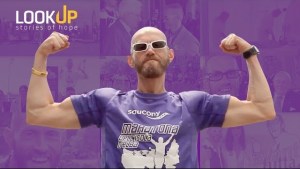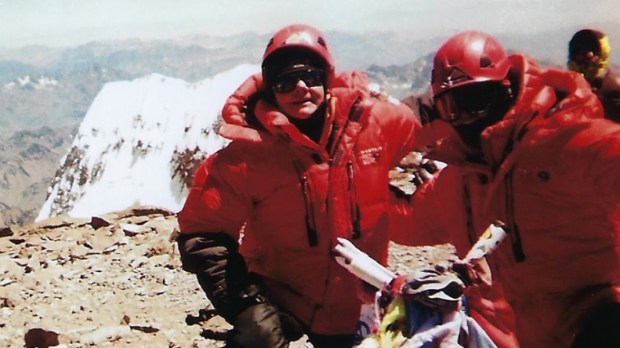in January of 2018, Isabella de la Houssaye learned she had stage 4 lung cancer. It was shocking news. She, of all people, was terminally ill—she, who had always loved sports and nature, who was a mountain climber and marathon runner, who neither smoke nor drank! However, the unexpected and painful news didn’t put a damper on her desire to keep living full throttle, and to enjoy every drop of life she had left with her husband and five children.
As reported in the New York Times, she qualified for experimental cancer treatment, and as soon as she was able to get out of bed and back into action, she set about fulfilling her wish to go on at least one last adventure with each of her children. She and her husband, David Crane, had already raised their children to be adventurers and extraordinary athletes, but according to the Times, there were still “lessons she wanted to share with her children about grit, persistence and mindfulness.”
Adventures and lessons
With her second youngest child, Oliver (who holds the record as the youngest person to row across the Atlantic Ocean alone), Isabella hiked more than 500 kilometers of the Camino of Santiago in Spain; in June, she ran a marathon in Alaska with her eldest son, Cason (who had already scaled the highest mountain on every continent). In September, along with her husband and three of her children, she ran an 80-mile ultramarathon in Kazakhstan. And as if that weren’t enough, she followed this up with a full Ironman competition in South Korea with her son David (who at the age of 19 had cycled north to south across the entire African continent, from Cairo to Cape Town). She has accomplished more feats of stamina and athleticism since being diagnosed with what is almost certainly fatal lung cancer than most healthy people do in their entire lives.
If you’ve been keeping track, you’ll notice that so far we’ve listed four trips, but she said she wanted to have a special adventure with each of her five children. The one that’s missing is, perhaps, the most extraordinary: this past January, with her 22-year-old daughter Bella and a reporter and a photographer from the New York Times, Isabella climbed the highest mountain outside of Asia, the highest in both the Southern and Western Hemispheres: Mount Aconcagua (22,837 ft), in the Argentinian Andes. Bella was no stranger to mountain climbing; three years earlier, she hiked the Pacific Crest Trail, a mountainous trail that runs from Mexico to Canada.
It took two weeks of intense and difficult climbing for the mother-and-daughter duo to reach the summit. It was particularly difficult for Isabella, who had to overcome temperatures of -40F, weakness caused by her cancer treatments, difficulty eating due to nausea (caused in part by altitude sickness), and the fear that her weakened legs and body might not make the climb.
However, perseverance was exactly part of the lesson she wanted to teach. The Times reports that “this trek was an attempt to deliver a few essential lessons to her daughter while she still could, including the acceptance not only of life’s triumphs, but its woes — ‘joy and suffering alike.’”
The Times journalist also relates a touching mother-daughter moment during the last part of the ascent:
Bella looked at her mother, and her face, usually stoic, softened with emotion.
‘I don’t know anyone in the world who is stronger than you,’ Bella said. ‘I will never be you.’
‘Are you kidding me?’ Isabella said. ‘You are so much stronger.’”
These words on the mountainside show how proud Isabella is of her daughter, and how confident she is that Bella is ready to face the future.
When they arrived at the peak—more than four miles above sea level—they embraced and wept. It’s a trip they’ll never forget, full of difficulties and emotions. Isabella may not be able to be physically at her daughter’s side much longer, but the lessons she taught her throughout her life will remain forever.
For many reasons, not everyone has the strength or opportunity to use the last year of their life taking adventurous trips with loved ones. Nevertheless, we all can be inspired by Isabella’s example. We don’t need to be dying—or to be a world-class athlete—to prioritize the use of our own time, strengths, and abilities, to be with the people we love.
We can’t be with them in this world forever, but if we show that we love and respect them, if we encourage them, build them up with our example, and share our experience and wisdom with them, we will remain with them even when we’re physically absent. And, if we teach each other to be strong and to live with love, generosity, goodness, and virtue, using God’s gifts as best we can, we can be together in eternity as well.

Read more:
Cancer patients turn to this saint every day

Read more:
What would you do if they told you that you were dying?

